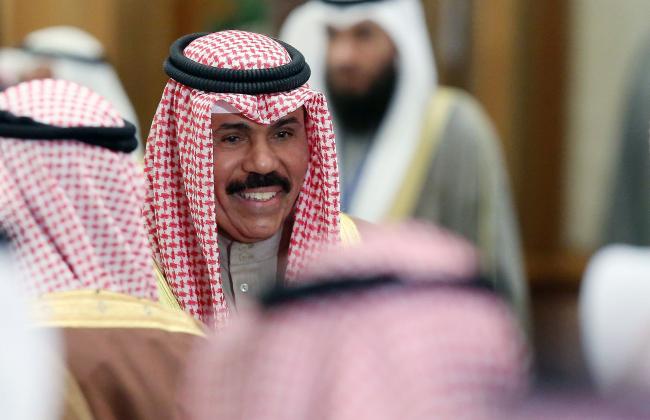(Bloomberg) -- Kuwait’s new leader, Sheikh Nawaf Al-Ahmed Al-Jaber Al-Sabah, 83, will take the reins of one of the world’s wealthiest countries as it faces a financial crisis made worse by internal political wrangling.
Sheikh Nawaf succeeds his half brother, Sheikh Sabah Al-Ahmed Al-Jaber Al-Sabah, who died on Tuesday at the age of 91. Sheikh Nawaf, the crown prince since 2006, had been serving as acting head of state since July, when the emir was flown to the U.S. for medical treatment.
The new leader comes to power at a time when Kuwait is facing the highest budget deficit in its history, brought on by the drop in oil prices and the coronavirus pandemic. A potential solution to its brewing liquidity crisis has been blocked by parliamentary opposition to a law that would allow the government to borrow, as other Gulf nations have done in response to the dual crisis.
While Kuwait’s oil and foreign policy is unlikely to change, its domestic political landscape could be redrawn under the new leadership, particularly if Sheikh Nawaf makes a bid for national reconciliation. Such an initiative could help unblock Kuwait’s gridlocked politics and restore some balance among the different branches of the ruling family.
Kuwait is the only country in the Gulf where nationals have a genuine say in how they’re governed, but the resulting political paralysis means it’s been left behind by less democratic neighbors like the United Arabic Emirates. The emir appoints the prime minister and political parties are banned, so there’s no coherent opposition. The elected parliament is often filled with populist independents who butt heads with governments they accuse of being too soft on corruption.
Opposition Meetings
Sheikh Nawaf has split from his predecessor in meeting with two of Kuwait’s veteran opposition politicians, Ahmed Khateeb and Ahmed Al-Saadoun, amid calls to allow the return of self-exiled opposition leaders. The new leader also recently received proposals for political and economic reforms from two opposition politicians. The meetings came ahead of crucial parliamentary elections later this year.
The opposition has boycotted parliamentary polls since December 2012, when the electoral law was amended at the order of the former emir. The boycott followed one of the biggest opposition rallies in the nation’s history, as critics called for the government to share more power with elected politicians.
The opposition claimed at the time that the changes to voting rules were aimed at reducing its chances of winning and made it easier for candidates to buy votes. The government said the amendments were intended to ensure stability and boost democracy.
According to the constitution, the crown prince ascends to power upon an emir’s death. That would leave Sheikh Nawaf with the duty of appointing a new crown prince, which he has one year to do. The new emir needs the endorsement of parliament for his crown prince nominee. In theory, parliament could reject the emir’s choice, forcing him to submit three fresh nominees for the house to vote on.
Sheikh Nawaf, born in Kuwait on June 25, 1937, is the sixth son of Kuwait’s tenth ruler, Sheikh Ahmed Al-Jaber Al-Mubarak Al-Sabah. He was first appointed to the cabinet in 1978 as interior minister, and thereafter held the defense and social affairs portfolios. Sheikh Nawaf has also served as deputy chief of the national guard. He was educated in Kuwait and is married with four sons and one daughter.
©2020 Bloomberg L.P.
